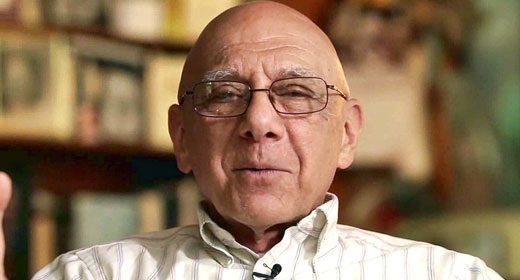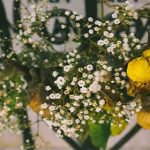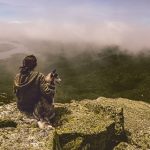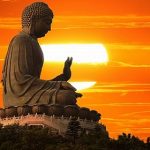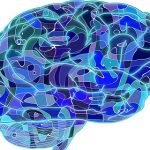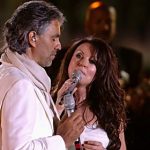by Sharon Ufberg: For the past several months, Dr. Ufberg’s column has offered interviews with outstanding women leaders in the integrative healthcare community.
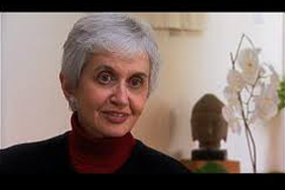 Each of the remarkable women interviewed: Dr. Tieraona Low Dog, Dr. Devra Davis and Dr. Rachel Remen, have made a significant impact in the field of integrative medicine and will be featured presenters at the March Integrative Healthcare Symposium in New York City. This is the last of the three part interview series. Dr. Rachel Naomi Remen is a nationally recognized author, educator and medical reformer. As one of the earliest leaders in the mind/body holistic health movement, she was the first to recognize the role of the spirit in the maintenance of health and the recovery from illness. She is the co-founder and Medical Director of the well-known Commonweal Cancer Help Program, the Founder and Director of The Institute for the Study of health and illness (ISHI) at Commonweal and Clinical Professor of Family and Community Medicine at the University of California, San Francisco School of Medicine.
Each of the remarkable women interviewed: Dr. Tieraona Low Dog, Dr. Devra Davis and Dr. Rachel Remen, have made a significant impact in the field of integrative medicine and will be featured presenters at the March Integrative Healthcare Symposium in New York City. This is the last of the three part interview series. Dr. Rachel Naomi Remen is a nationally recognized author, educator and medical reformer. As one of the earliest leaders in the mind/body holistic health movement, she was the first to recognize the role of the spirit in the maintenance of health and the recovery from illness. She is the co-founder and Medical Director of the well-known Commonweal Cancer Help Program, the Founder and Director of The Institute for the Study of health and illness (ISHI) at Commonweal and Clinical Professor of Family and Community Medicine at the University of California, San Francisco School of Medicine.
Dr Remen is the founder and director of The Healer’s Art, a twenty year old curriculum on reclaiming the heart and soul of medicine, which is presently taught annually in more than half of American medical schools and in five countries abroad. About 1,500 medical students take The Healer’s Art each year. Dr. Remen’s groundbreaking holistic continuing education programs enable graduate health practitioners at all levels of training to remember their calling and strengthen their commitment to serve life. Dr. Remen is also a masterful storyteller and public speaker and the acclaimed author of two New York Times bestsellers, Kitchen Table Wisdom: Stories That Heal and My Grandfather’s Blessings: Stories of Strength, Refuge and Belonging.
Ufberg: Dr. Remen, how did you come to be involved in your work of weaving spiritual health into conventional western medicine?
Dr. Remen: Actually Sharon, perhaps we do not need to weave spirituality into conventional medicine. Spirituality is a basic dimension of every person, every interaction and certainly every act of healing. Fundamentally, life is spiritual and therefore all we need do is to recognize this, to see the familiar in new ways. A lot in our training numbs us to the spiritual nature of our work. We often are in the presence of mystery and we do not even notice. We can become so focused on our technique and expertise, so rushed and distracted by the paperwork and the many hoops we have to jump through in today’s health care environment that we pass right by moments of deep meaning and inspiration. As one of my medical students said, “Too great a scientific objectivity can actually make you blind.” Unfortunately the things we do not notice are the very things that can strengthen us in dealing with the frustrations of today’s healthcare and the stresses of being a healthcare provider.
So who were your role models, Dr. Remen?
I have been involved in promoting holism in medicine since 1967. The problem with being a true pioneer is that you have no role models, just ideas about a different way of being, a different way of working, a larger medicine… ideas which almost everyone around you sees as simply crazy. At the beginning of change, in order to make a difference, one must often be willing to sacrifice everything: professional credibility, financial security, even career advancement in order to be true to a vision of possibility. It can be lonely. I have a severe chronic illness that I have had since the age of 15. At that time my doctors told me that I would die before I was 40. Because of my own life history, it was necessary for me to look beyond the existing techniques and science of medicine and find a way to help myself and others like me and find a way to live. The ironic thing is that if you follow a vision for long enough, eventually you yourself become a role model.
Your topic for your keynote presentation at the upcoming 2011 Integrative Health Symposium is titled: “Soul Work: Integrating the Spirit in Health Care”. Can you tell us about what you’re hoping to share with practitioners in March
By telling true stories about the mystery and awe that is a part of health care, I hope to enable people to remember their own stories and become more aware of the experience of mystery and awe in their everyday work lives. I will be pointing to the possibility that people can find a much deeper inspiration, satisfaction and meaning in the work they are already doing. A good story is like a compass, it points to something that is real and true and universal, it helps us to see ourselves and others in new ways and can cause us to change our way of moving through the world. It can bring us home to ourselves. Our professional culture often limits the way we think and the way we see things. It interprets our experiences for us in ways that are often very constricted and small. Science describes life but we cannot allow it to define life for us: life is much larger than science and we are larger than our science. Our daily work is filled with awe. We see love and courage, devotion and loyalty, acts of heroism and self sacrifice on the part of the most unlikely people. We see things that cannot be explained but only witnessed. Healthcare is the front row seat of life and many of us are sitting in that seat with our eyes closed. It is possible to experience this work in such a way that you feel gratitude for the opportunity to do it, to be there with people at very special times in their lives and see things that can make you wise.
Would you share a bit about the curriculum you created for medical students?
Thanks for asking! ‘The Healers Art’, is a discovery model curriculum for medical students. It is based on tested educational principles drawn from fields outside of medicine and draws on approaches from transpersonal and humanistic psychology, contemplative studies, aesthetics, imagery, poetry and narrative, adult education, formation and coaching. The curriculum forms a community of inquiry among students and faculty to explore life experience and uncover principles of healing and healing relationships. It enables students to trust through experience the power of their personal presence and generous listening to heal. It is the most highly rated elective among students in almost all the schools that teach it. Students nationally report that the course fills a gap in their existing curriculum and enables them to become the sort of healers they hope to be. At present we have been consulting with nursing leaders and deans nationally to enable the development of a similar course for nursing students and are presently piloting a Healer’s Art curriculum for medical residents as well.
What is on your horizon, what’s next for you?
I am interested in furthering the dreams of my colleagues and my students. Healthcare cannot move forward unless we all move forward together, unless we all have a dream of the way this work could be and we are willing to fight for that dream. Medicine is not a job, it is a way of life. Each one of us is called to this work because of an inner direction. I hope to help people hear and honor the truth of their own vision, their own personal dream of service. That is what is going to heal this broken healthcare system and that is what I am interested in, enabling people to live and work by the best that they know.


